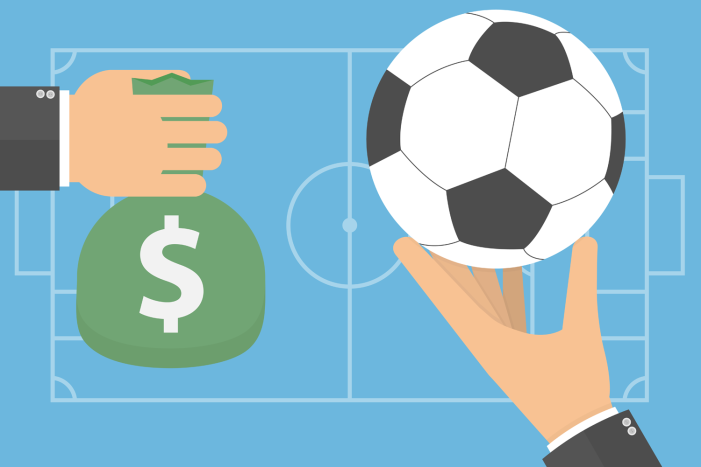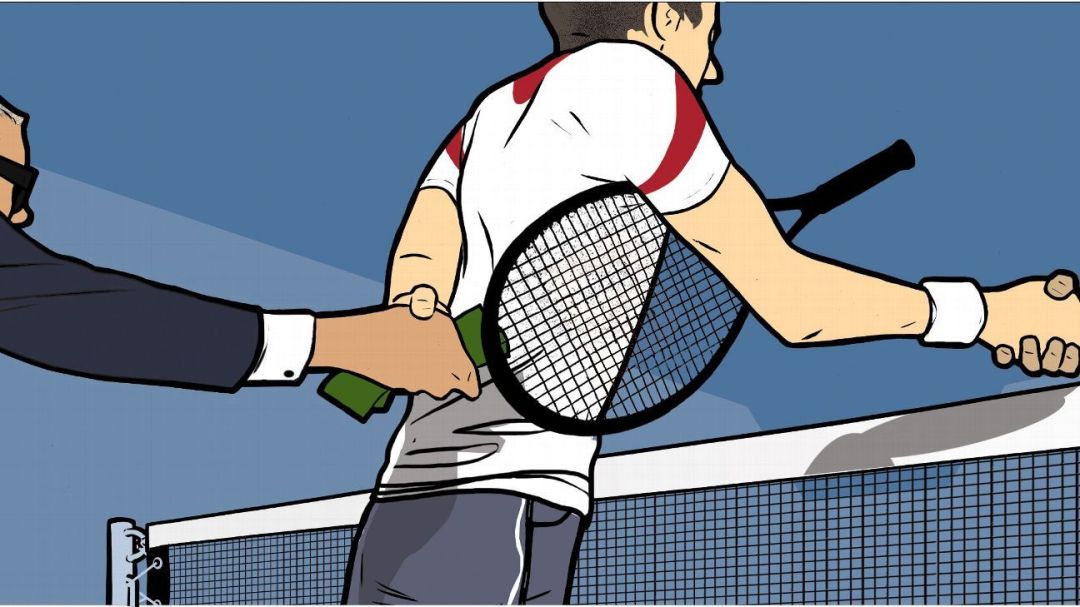Last week several players, ex-players and senior club figures from Spain’s top three divisions were arrested and questioned by the police. Their alleged crime? Match Fixing. The police claimed to have spotted a familiar pattern of money moving between certain individuals and an increase in betting of roughly 14 times the normal in a Segunda Division match. La Liga were quick to put a PR spin on the events lauding the operation as proof that their anti-fixing measures were working. However, shouldn’t their anti-fixing measures be preventative rather than reactive? In total around 11 people were arrested for the offence but what is match fixing?
Match fixing is “the action or practice of dishonestly determining the outcome of a match before it is played.”
Certain assumptions are taken for granted in sport; most of all that players are competing to win and their motivations are uncorrupted. Unfortunately, this isn’t always the case and certain bad actors have brought sports into disrepute as, by its very nature, match fixing threatens the integrity of sport. For example, boxing’s reputation suffered between 1987 and 1999 when 30 fights were fixed.
Let’s be clear, there are two types of match fixing:
- For financial gain and
- For sporting gain.
Match fixing is not a new phenomenon and one of the biggest sporting scandals happened in 1919 when the Chicago White Sox purposefully lost the World Series and were dubbed the Black Sox. Since then match fixing has continued to take place with more recent examples such as the Germany v Austria fixture in the 1982 World Cup where both teams stood to progress with a 1-0 result or when the Pakistan cricket team were convicted of spot fixing. It seems that match fixing permeates through almost all sports but which sports are at greatest risk?
“We have evidence of organised crime groups in China, Russia, the Balkans, the United States and Italy making substantial money…. Sports governing bodies and football associations need to get real about prevention. Many sports, of course, are affected by match-fixing, but football, the global game, is top of the league and cricket is second.” – September 2014 John Abbot, head of the Interpol/Fifa initiative against match-fixing
Sportradar, a respected company supplying sports and betting-related live data, odds solutions and fraud detection services, and which works closely with UEFA, stated in 2013 that of 30,000 football games monitored between 250 and 300 were highlighted as being fixed.

The Rise of Betting
Match fixing is sometimes linked to transnational economic crime and criminal syndicates. Their biggest costs are laundering money and the best way for them to legitimise their money is through gambling. If they can control the market they can make even more profit.
Gambling and sports go hand in hand and gambling companies are extremely visible in football. Go to a football match between West Ham and Burnley and you’ll see their sponsors are Betway and LaBa360 both gambling companies. Excluding the parallel market in illegal betting, the global sports market has been estimated at 1.8% of global GDP, surpassing the textile and steel industries, perhaps double that if illegal sports betting is included according to Vidal (in ‘Protecting the Integrity of Sport Competition. The Last Bet for Modern Sport.’) He argues that the introduction of ‘live betting’ (taking bets during a match while the odds are changing all the time dependent on the state of the match), has greatly increased the threat to the integrity of competitions. He estimated that $US140 billion is laundered annually through sports betting; ie 10% of the revenue worldwide of organised crime. Furthermore, there are 400 million different sports betting odds worldwide per day and the possibilities for criminals to use and abuse betting by match fixing have grown and grown. In response to the rise in match-fixing Interpol now has a dedicated crime area “Integrity in Sport”, involving investigations in more than 80 countries.
Sports organisations recognise that if athletes were allowed to bet on their performance then they could impact the result for their own financial gain. In August 2014 the FA brought in new rules that restricted players in Premier League and Football League from betting on any football match regardless whether they could impact the result. The FA are prepared to sanction players who breach these rules and Joey Barton served a five month ban for placing 1,260 bets between 2006-2016. Wayne Shaw, Sutton’s keeper was fined £375 after he ate a pie during his side’s FA cup tie with Arsenal knowing that the bookmaker had offered 8/1 odds of this happening!

Next Steps
The Council of Europe have a convention on the Manipulation of Sports competitions, which sets out several guidelines for how to minimise match fixing. These include:
- Appointing officials “at the latest possible stage” – Article 7(2)(e)
- Providing “adequate protection for whistle blowers.” – Article 7(2)(c)
- Encouraging governments to “explore the most appropriate means to fight operators of illegal sports betting’ and to ‘consider’ adopting measures such as “restriction of access to illegal remote sports betting operators [website blocking], and closure of illegal land-based sports betting operators” – Article 11
- Creating a ‘national platform’ to act as a coordinator of the fight against match-fixing by serving as ‘an information hub’, sharing information on match-fixing with, and receiving information from, sports bodies, public authorities and betting operators within the state as well as other states’ national platforms. – Article 13
- Requiring states to create a specific criminal offence of money laundering connected to match-fixing. – Article 16
Sports organisations are worried about match fixing because commercially it affects their brand but does international criminal law really need to get involved in this? The Convention is yet to be ratified but here are some other ways I believe governments and sports organisations can fight match fixing:
1. Legalise betting worldwide: The US and Vietnam both legalised sports betting in 2018 and will now be able to regulate the market that already existed. In India and many Islamic countries they do not consider they have a problem with betting because it is illegal (and therefore doesn’t happen right?) The moral problem with gambling has hindered it being regulated and that has arguably made the situation worse. In countries where betting is legal and the markets are regulated, including Australia, Ireland, and the United Kingdom, prosecuting match fixing has been successful, in part due to easier access to betting evidence.
2. Sponsors should boycott teams/leagues convicted of match fixing: When corporate sponsors are affiliated with a league that experiences corrupt match fixing, such activities can have serious impacts on the goodwill of that company. After allegations of fixed matches during international friendlies South Africa national team’s sponsor Puma ended its financial relationship with the country’s football association. Revenues for the association dropped from $80 million in 2010 to $20 million in 2013 following the scandal. If sponsors are willing to walk away from teams perhaps teams will take match fixing more seriously to avoid being hit where it hurts, in the wallet. A similar boycott occurred following a race-fixing incident at a 2009 grand prix and ING terminated its sponsorship of the Renault Formula One team.
3. Better education: Perhaps players need to be better educated about the effects of match fixing on their career. Ultimately, if you can stop the supply, you get rid of the demand and education should play a role in helping athletes make better decisions.
4. Redistribution of prize money: Match fixing is influenced by the monetary benefits of cheating compared to income from potentially winning. Some sports have a very unbalanced distribution for example snooker. In the 2016 World Championships the winner won £330,000 while losing in the first round meant that you left empty-handed.
“Sport is about giving players opportunities, it’s not about giving them money. If they are good enough to take their opportunity they deserve the money they win. First-round losers get nothing, no matter who you are,” said Hearn in a 2013 interview with BBC Sport.
Although Hearn justifies his position by focusing on the sporting merits of the players his approach is undoubtably conducive to match fixing and 6 months ago 2 Chinese players were found guilty and banned from the sport. They were ranked 52nd and 44th in the world and will be banned for 10 years and 6 years respectively.
Jason Ferguson, chairman of the World Professional Billiards and Snooker Association, said: “It is very sad when talented players are attracted to the opportunity to make money from fixing matches. The WPBSA has very effective prevention and monitoring processes that protect the sport. Where players ignore this, they risk their careers and they will be caught.”
Ultimately, match fixing is not a new phenomenon, but as sports become more and more commercialised people will look to exploit them for financial gain. Each sport has different factors that put it at risk and there is currently no unified response.
And for those of you who don’t think match fixing is a real thing…

